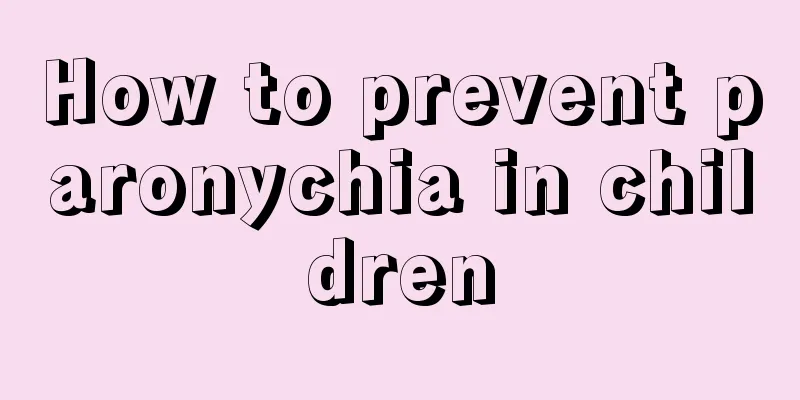Children wetting the bed at night

|
Moreover, many parents have always been troubled by the issue of their children wetting the bed. For babies of a few months old, bedwetting is actually very normal, but for children of a few years old, bedwetting is something worth doing. However, you should know that sometimes bedwetting is not the child's own will and may be uncontrollable, and some correct methods are needed to regulate it. Don't worry too much about children wetting the bed. Most of them are just going through the motions. In fact, parents do not need to be overly nervous about their children's bedwetting, because 90% of children's bedwetting is functional, that is, it is caused by genetic factors and improper bowel training of children. Generally speaking, although this type of bed-wetting has a long course and is stubborn, it will eventually improve or be cured as long as the treatment is appropriate and persistent. Only a small number of children suffer from bedwetting due to organic diseases of the nervous system, endocrine system or urinary system, such as brain tumors, epilepsy, diabetes, diabetes insipidus, urinary tract infection, urinary tract malformation, etc. These bedwetting are secondary. When should you seek medical attention if your child wets the bed? Although bedwetting in children is mostly functional, parents cannot ignore it if it persists for a long time. Generally speaking, if a child over 5 years old still wets the bed, he or she should seek medical attention immediately. Because the longer a child wets the bed, the greater the psychological damage it causes to the child, especially for older children. If bedwetting occurs suddenly when a child is older, it should be taken seriously and the child should go to the hospital immediately for treatment, because this condition is often caused by diseases of the brain, spinal cord, kidneys, bladder or endocrine system. In addition, special attention should be paid to the accompanying symptoms of bedwetting in children. If bedwetting is accompanied by frequent urination, painful urination, polydipsia, thirst, weight loss, headache, vomiting, convulsions, abdominal pain, and back pain, these are warning signs of other serious illnesses and medical attention should be sought promptly. For children who wet the bed, it is best for parents to take their children to the pediatric urology department of the hospital for treatment. However, if the accompanying symptoms mentioned above occur, the children can also be taken to the neurology, nephrology or endocrinology department for treatment. Tip 1. Sleep in a dry place The bedding of children who are prone to bedwetting must be kept dry. A wet bed will increase the likelihood of bedwetting in children and make them more likely to urinate. Tip 2. Spiritual encouragement If your child wets the bed too frequently, don't blame him/her blindly, as this will make the child feel worried and scared. Parents can encourage their children more, and if the child does not wet the bed, they can give him some praise and encouragement. Tip 3. Excitement Control If a child's brain is too excited, he or she may wet the bed at night. Therefore, children should be allowed to develop the habit of going to bed on time. Avoiding teasing or doing any actions or games that will excite the brain before going to bed can also prevent children from wetting the bed. Tip 4. Conditioned reflex training Parents can observe the time when their children wet the bed at night, and then wake them up in advance during this time, hold their diaper or take them to the bathroom to empty their bladder. This will allow children to form a conditioned reflex and avoid bedwetting. Tip 5. Urinate before bed For children who are accustomed to bedwetting, dinner should be light, so that they can drink less water, and the fruits they eat should not contain too much water. Children should also be encouraged to develop the habit of urinating before going to bed. Tip 6. Diet correction In normal times, you can give bed-wetting children more foods that nourish the kidneys and reduce urine, such as mutton, dog meat, shrimp, sparrow meat, frogs, dog kidneys and chicken intestines. You can also use yam, water chestnut, lotus seeds, coix seed and golden cherry to make porridge for children. |
<<: How to treat intestinal spasms in children
>>: Teething order for children
Recommend
What is the treatment for nose bleeding in children?
In fact, many people have experienced nosebleeds....
Why is my baby drooling?
Drooling is a relatively normal thing for babies ...
How to treat follicular pharyngitis in children?
My child at home keeps coughing. No matter how ha...
There are great dangers for children playing mobile online games, parents should be vigilant!
With the implementation of the two-child policy, ...
What is the reason for diarrhea with blood in children?
Children have a high chance of suffering from dia...
Corpus callosum atrophy
The corpus callosum is very important to our huma...
Parents 9 ways to cooperate with children to learn well
The child’s learning process is not a solitary ba...
What is the height and weight of a one year and three month old baby?
As the baby develops and grows day by day, from a...
What to eat for anemia in teenagers
Teenagers are in the stage of physical developmen...
How to supplement children with anemia
Anemia in children will affect the functions of v...
What should I do if my child lies? Parents, please look here
Many parents are particularly averse to their chi...
Child has fever and itching all over body
Because babies' immune systems are relatively...
What is the disease when white spots appear on children’s skin?
If we were to say which skin disease is considere...
Treatment of myocarditis in children
Children are in a period of rapid growth and thei...
What should I do if my child’s gums are red, swollen and bleeding?
Teeth are the most important part of every person...









